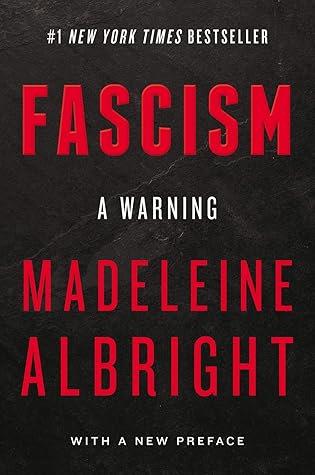More on this book
Community
Kindle Notes & Highlights
As people vent their daily frustrations, the word escapes a million mouths: teachers are called Fascists, and so, too, are feminists, chauvinists, yoga instructors, police, dieters, bureaucrats, bloggers, bicyclists, copy editors, people who have just quit smoking, and the makers of childproof packaging. If we continue to indulge this reflex, we may soon feel entitled to label as Fascist anyone or anything we find annoying—draining potency from what should be a powerful term.
speech after speech, Mussolini offered an alternative. He urged his countrymen to reject the capitalists who wanted to exploit them, the Socialists who were bent on disrupting their lives, and the crooked and spineless politicians who talked and talked while their beloved homeland sank further into the abyss.
In 1932, Mussolini described Fascism as a closed universe in which “the State is all-embracing,” and outside which “no human or spiritual values can exist.”
Most political movements of appreciable size are populist to one degree or another, but that doesn’t make them Fascist, or even intolerant.
Fascist is not ideology but the willingness to do whatever is necessary—including the use of force and trampling on the rights of others—to achieve victory and command obedience.
Do they echo the attitude of Mussolini: “The crowd doesn’t have to know,” all it has to do is believe and “submit to being shaped”?


